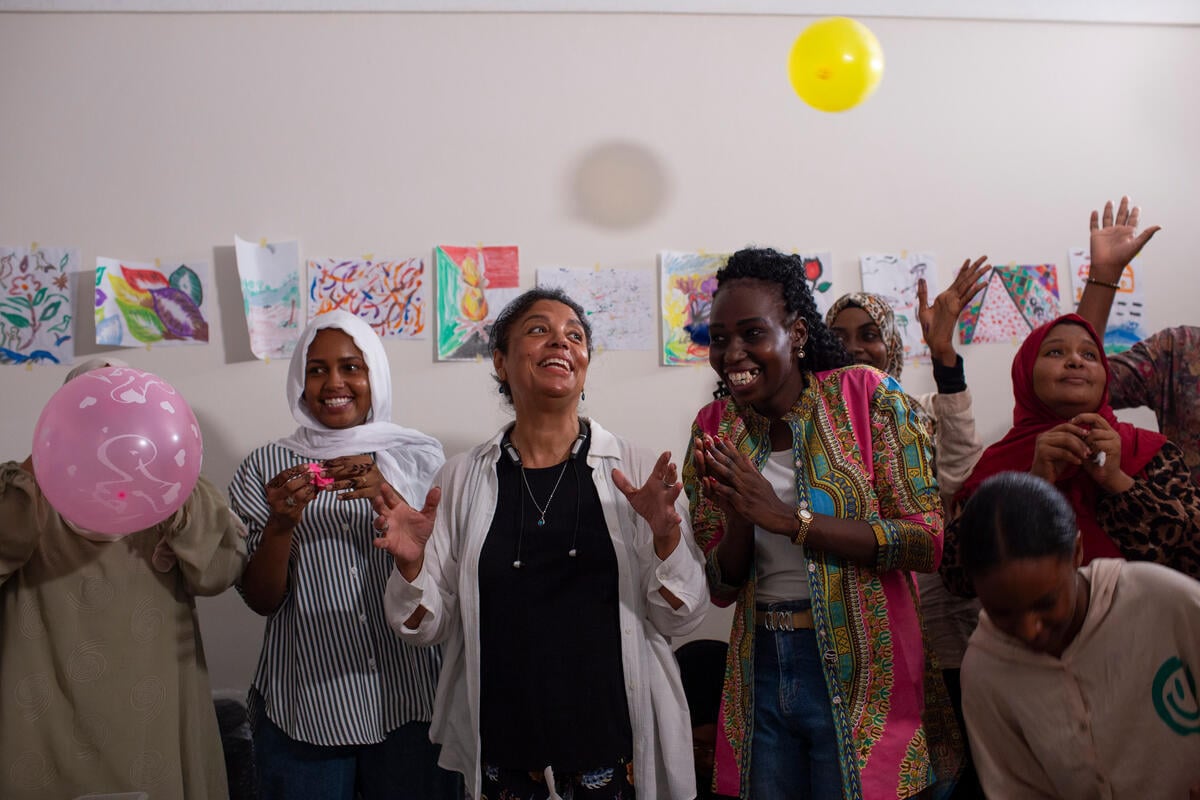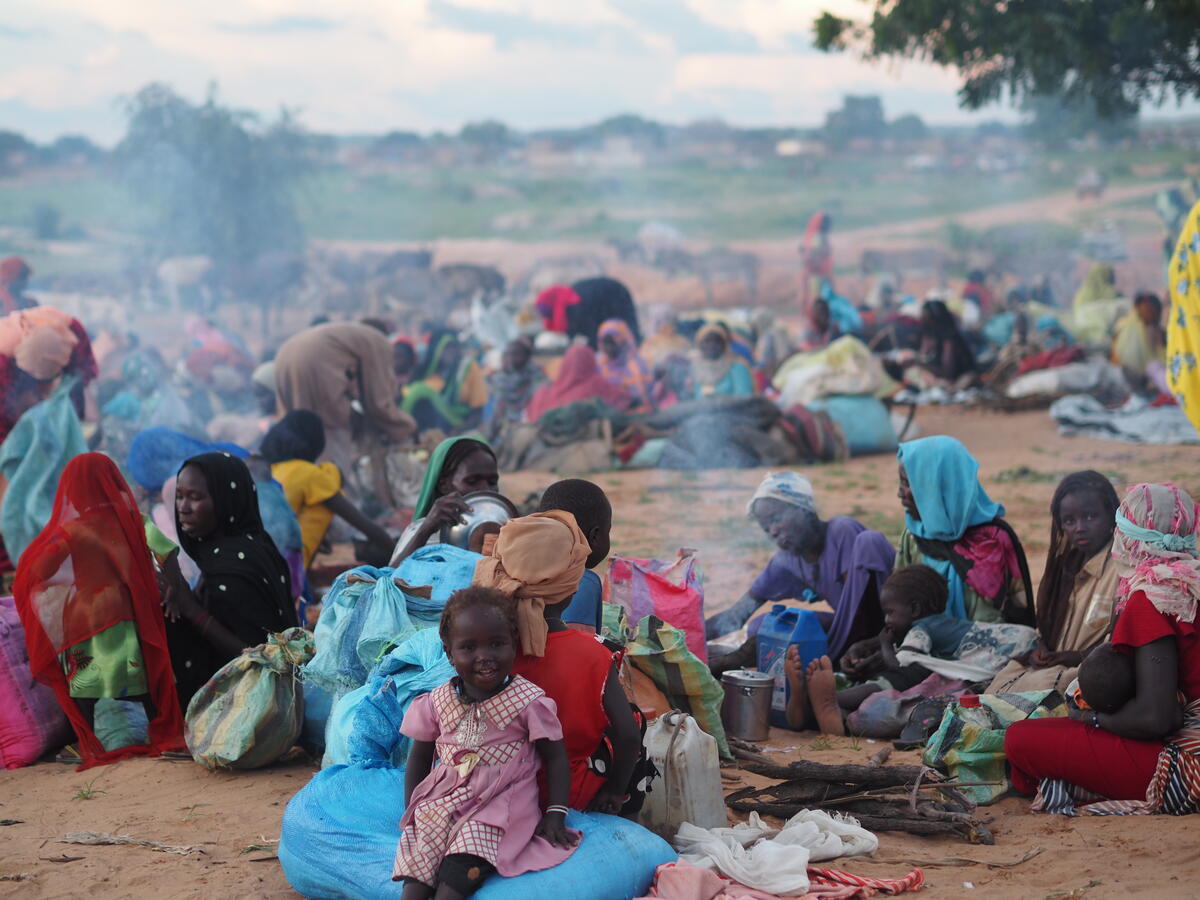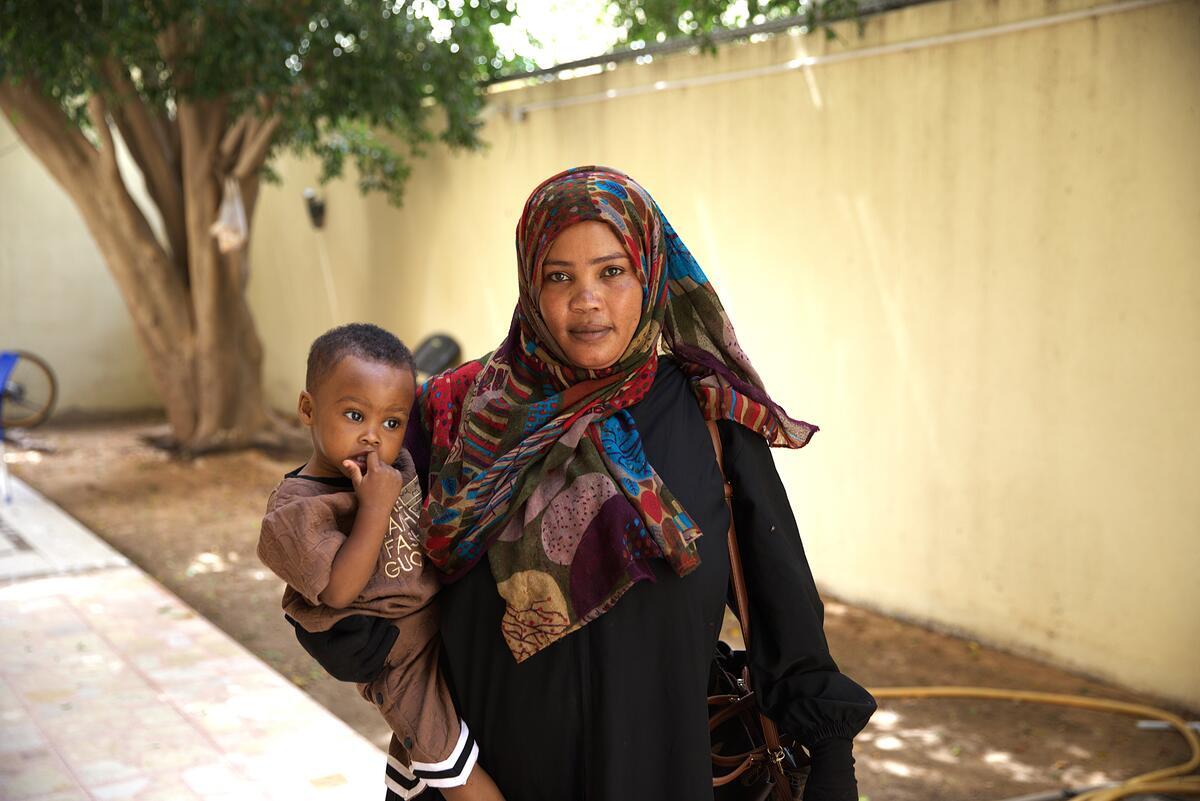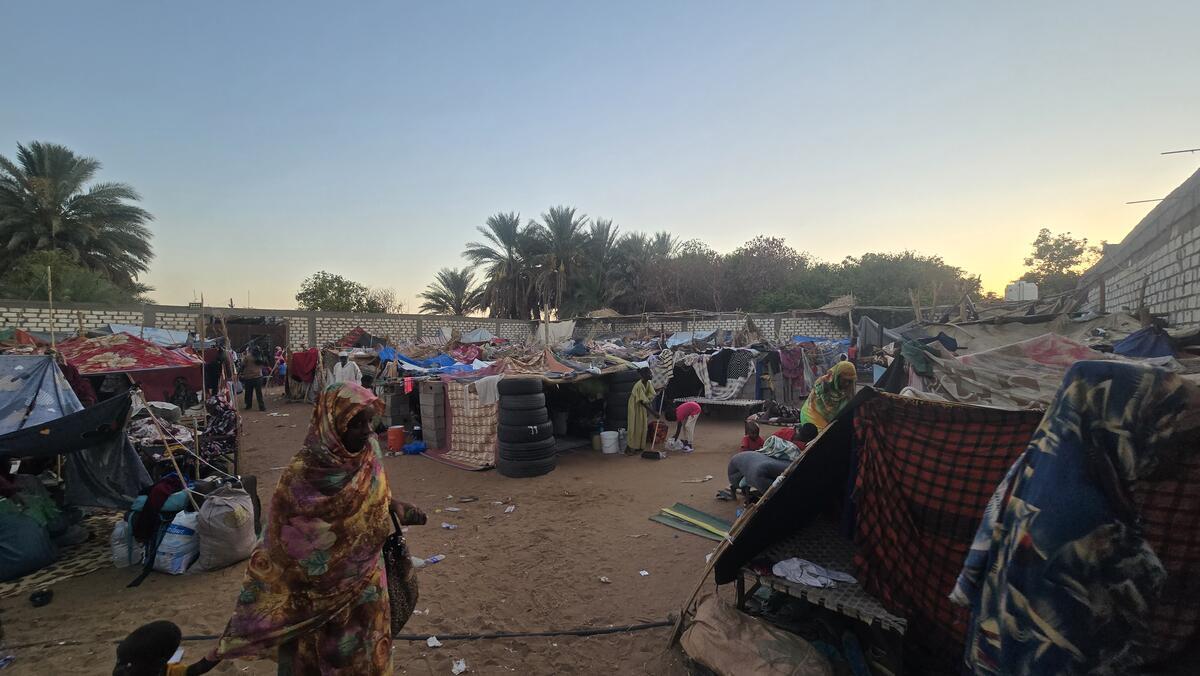Darfur: help for IDPs, but concern on voluntariness of return
Darfur: help for IDPs, but concern on voluntariness of return
In El Fasher, the capital of North Darfur, UNHCR is supporting the international aid community's efforts to protect an estimated 258,000 internally displaced Darfuris. At a workshop on Sunday, a UNHCR protection officer from our office in Nyala, capital of South Darfur, provided information to representatives of other UN agencies and international non-governmental organizations (NGOs) on the internationally-agreed rights of internally displaced people (IDPs). UNHCR plans in the near future to open an office in El Fasher, which would be its third in Darfur.
In West Darfur, UNHCR is concerned that the local authorities and government of Sudan are continuing to put pressure on displaced people to return to villages that are not safe and do not offer any possibility of a decent life, since most of the crops and homes have been destroyed by rampaging militias. In South Darfur, the government has said it intends to move tens of thousands of displaced people now living in Kalma camp and Kas town, both near Nyala. In Kas town, international NGOs and UN agencies estimate the number of displaced people at about 40,000 - outstripping the number of original inhabitants.
In Mornei, a two-hour drive south-east of El Geneina, Sudanese authorities have announced their intention to move displaced people from a makeshift camp into a new camp to be called "New Mornei". UNHCR has consistently told the government at all levels that any movement of IDPs must be entirely voluntary, because people who have already suffered the trauma of being chased from their homes by armed militiamen do not need the further trauma of another forced move.
The government is posting policemen in empty villages in an effort to convince displaced people that it is safe to return to those villages. However, displaced people tell us they are not reassured by government policemen and do not feel the time is yet right for their return home.
Meanwhile, Dafuris continue to be displaced from their homes and villages. In recent days, hundreds of people have fled from Serengabo, Taweela, Tebeldia and Qasar villages into squalid makeshift camps near Nyala. Sudan's Commission for Humanitarian Aid Coordination (HAC) has told us they expect new waves of arrivals in or around Nyala because of recent fighting in the area.
UNHCR has also received reports from international doctors in West Darfur that fewer cases of rape are coming for consultations at the clinic. However, we are concerned that this does not necessarily mean there are fewer cases of rape and sexual and gender based violence against women, but could also indicate that pressure is being exerted on displaced women not to report rapes. We have contrary reports that rape of women inside the camps - which are not run by UNHCR - by Janjaweed militiamen from outside, is in fact escalating.









